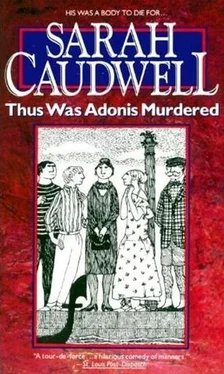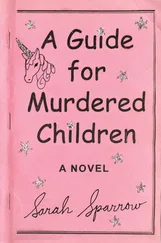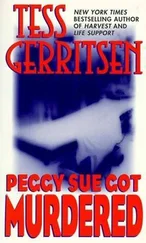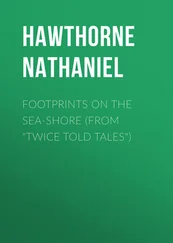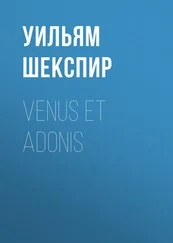“I don’t think—” said the sculptor, and stopped without my having interrupted him, but making a downward movement of his large hand which seemed to signify rejection of this and any other offer that the world might make to him.
“My dear Mr. Dunfermline, I am not for a moment suggesting that you should commit yourself at this stage. As I have indicated, we ourselves are by no means in a position to do so. We are simply trying, at present, to discover what would be involved in such a project — we are as children in such matters. We have very little idea, for example, of what it might cost.”
The massive shoulders rose slightly in a gesture of indifference and bewilderment.
“Depends what you want.”
“Yes, naturally. Much, no doubt, would depend on the material selected. We ourselves do not know what material an artist would consider suitable.”
“Stone,” said Kenneth, as if it were a credo that he would not, in the utmost weariness, forget. “Stone’s best.”
“A work in stone would, of course, harmonize admirably with our existing buildings. The design we would wish to leave very much to the judgement of the artist.” I looked towards the trestle table and received inspiration. “Some of my colleagues, however, have suggested that it might be agreeable to have a fountain. I perceive that you have been working on something of that kind. It looks, if it is not impertinent of me to say so, as if it would be a most impressive piece.”
The heavy shoulders rose again in the same gesture of indifference: he had wearied, it seemed, of the effort to find words. I looked rather desperately at Ragwort, sitting demurely beside me like a well-behaved schoolboy.
“Yes, it is most impressive,” said Ragwort. “But rather sombre, if you don’t mind my saying so.” It was true that there was something mournful about it. The central figure seemed to be that of a woman, whose flowing hair, however, covered her face and melted into the folds of the garment which enveloped her, so that one could not be certain which way she might be facing; round her, a dozen or so smaller figures, of children, girls and young men, were represented as lying, as if asleep, on the parapet round the fountain. I could see no particular reason for finding it a sorrowful scene; but Ragwort was right in saying that it was. “In the final version, I suppose,” continued Ragwort, “the figures would be life-size?”
“Yes. A little over.”
“And is it intended,” said Ragwort, “for a particular client?”
“It was. I shan’t make it. He’s leaving the place I was going to make it for.” I felt that I had been right to draw Ragwort into the conversation: three consecutive sentences was a considerable achievement.
“What a shame,” said Ragwort. “I hope you hadn’t spent a great deal of time on the preliminary work?”
“About a year,” said Kenneth, without resentment. “I’d done all the drawings and models. That on the table, that’s how it would have been. You’ve got to get it right, before you start cutting the stone. You can’t change your mind after that.”
Reluctant as I was to interrupt the flow of conversation, I felt able to delay no longer the question I wished to ask.
“I suppose,” I said, off-handedly, “that your client was Richard Tiverton?”
Ragwort made no exclamation; but he could not restrain a look of surprise. The possibility that Timothy and Kenneth might have a mutual client had plainly not occurred to him.
“Yes,” said the sculptor, his heavy eyebrows gathering in slow perplexity. “How did you know?”
“As I mentioned,” I said, “Desmond and I were at Frostfield’s the other day. Mrs. Frostfield was talking about the Tiverton Collection and she mentioned that you had been helping to sort it out — so I knew that Richard Tiverton was a client of yours.
And she also said something, I think, about him having to leave Cyprus. For tax reasons, I gather.” Ragwort now looked both surprised and severe — no doubt at my untruthfulness.
“Eleanor does talk,” said the sculptor, as if, had he had energy for such an emotion, the fact would have irritated him.
“Oh dear,” I said, “perhaps I shouldn’t have mentioned it. If it’s confidential, you may rely on my discretion.”
“It doesn’t matter,” said Kenneth.
“I had no idea,” I went on, “that there was any secret about it. I would rather have imagined, if there had been, that Mrs. Frostfield herself would be as anxious as anyone to keep it. It must be rather an advantage to have information on such a matter not known to one’s competitors, and she did not strike me as the kind of woman who would readily forgo an advantage. Indeed, she gave me the impression of being rather ruthless. One would not put it past her, for example, to have suggested that you should sell her some of the more valuable items at a favourable price and share the profit.”
“She did,” said Kenneth. “Stupid — I wouldn’t do down Richard to please Eleanor. She’s quite stupid, really.” He spoke without indignation — though I remembered, from Julia’s account of the conversation on the terrace, that the proposition, when first made, had roused him to considerable anger.
“How ridiculous of her,” said Ragwort. “She must have known you were doing it as an office of friendship. One can hardly suppose, if I may say so, that an artist of your standing would undertake such a task on a purely professional basis.”
“An office of friendship,” repeated Kenneth, turning the phrase over like a piece of stone that pleased him. “Yes, that’s right.”
“It must be a great responsibility,” I said, “to have in one’s care a collection of such value. I gather from Mrs. Frostfield that it attracted interest from some rather unscrupulous characters. What was the name she mentioned? Bruce something — I can’t remember the rest of it, but you know who I mean, Mr. Dunfermline.”
“No,” answered Kenneth, with blank indifference, “I haven’t heard of anyone called Bruce.” Neither Ragwort nor myself venturing to touch more closely on the subject of his grief, nothing further was said of any significance. I urged him, before we left, if he should receive an invitation to come to Oxford and consider the artistic possibilities of our Quadrangle, not to reject it out of hand.
“Are you,” asked Ragwort, in the kind but severe tone in which he sometimes reminds Julia to buy enough food for the weekend, “going to be all right?”
“Yes,” said the sculptor, “I’ll be all right,” and smiled — whether at the absurdity of Ragwort’s question or the conventional untruthfulness of his own answer — a surprisingly beautiful smile.
The interview had left me feeling dispirited, for I perceived now that the sculptor’s attachment to
Ned had been one of great intensity and passion, such as one rarely sees. One could not wish, for oneself or for one’s friends, any first-hand experience of such extremity of feeling — it is not conducive to comfortable living. And yet there is about it, when observed, something curiously touching and attractive, so that one almost, absurdly, regrets one’s own inability to entertain it.
Ragwort could not be persuaded that our expedition had been a success. Kenneth, he said, was plainly too dazed to remember anything not of great importance to him. We had told a great many lies and learnt nothing.
“We have learnt,” I said, “that Kenneth was the person in charge of the Tiverton Collection last week.”
“It’s an interesting coincidence,” said Ragwort, “but it can’t have anything to do with the murder.”
“Don’t you think so? You are surely forgetting, my dear Ragwort, that it is a very valuable collection and that Eleanor, in particular, is most anxious to acquire certain items in it. We know she is not unduly scrupulous. When Kenneth refused to cooperate, do you think it impossible that she employed her friend Bruce to acquire them by more direct methods? And if Ned found out about it and threatened to tell his friend, would that be an insufficient motive for murder? Using the same accomplice, and ensuring that it was committed while she herself was safely elsewhere?”
Читать дальше
